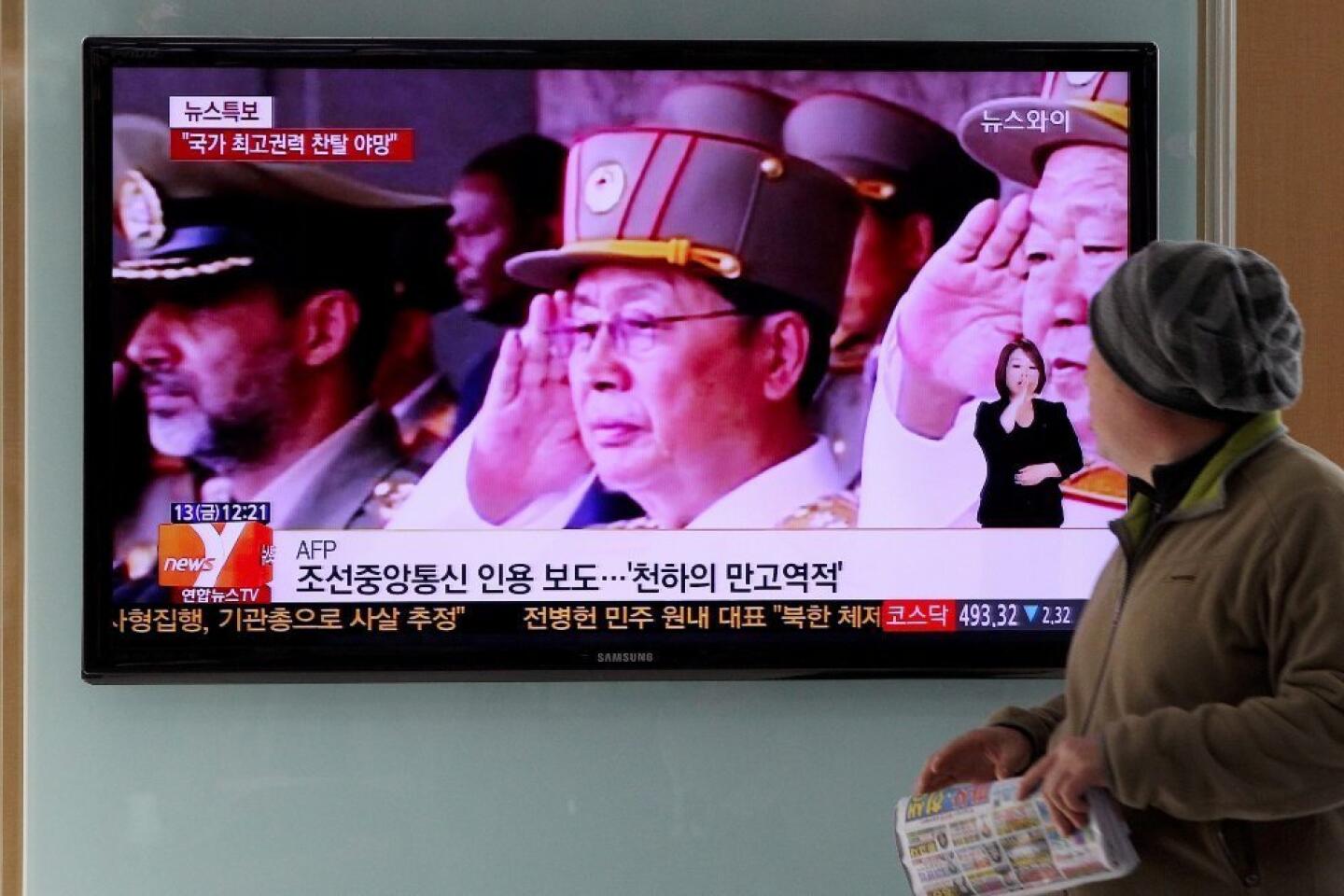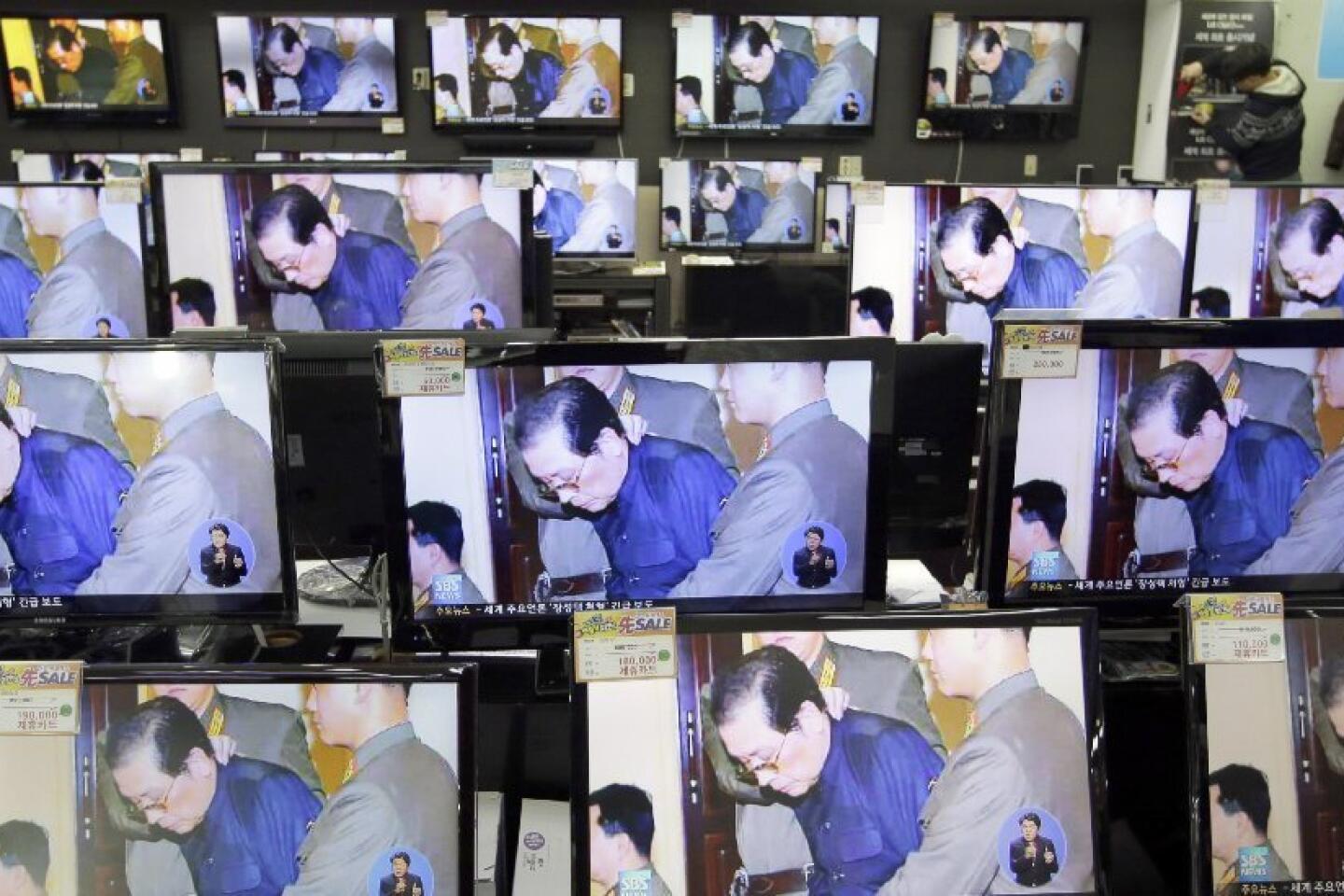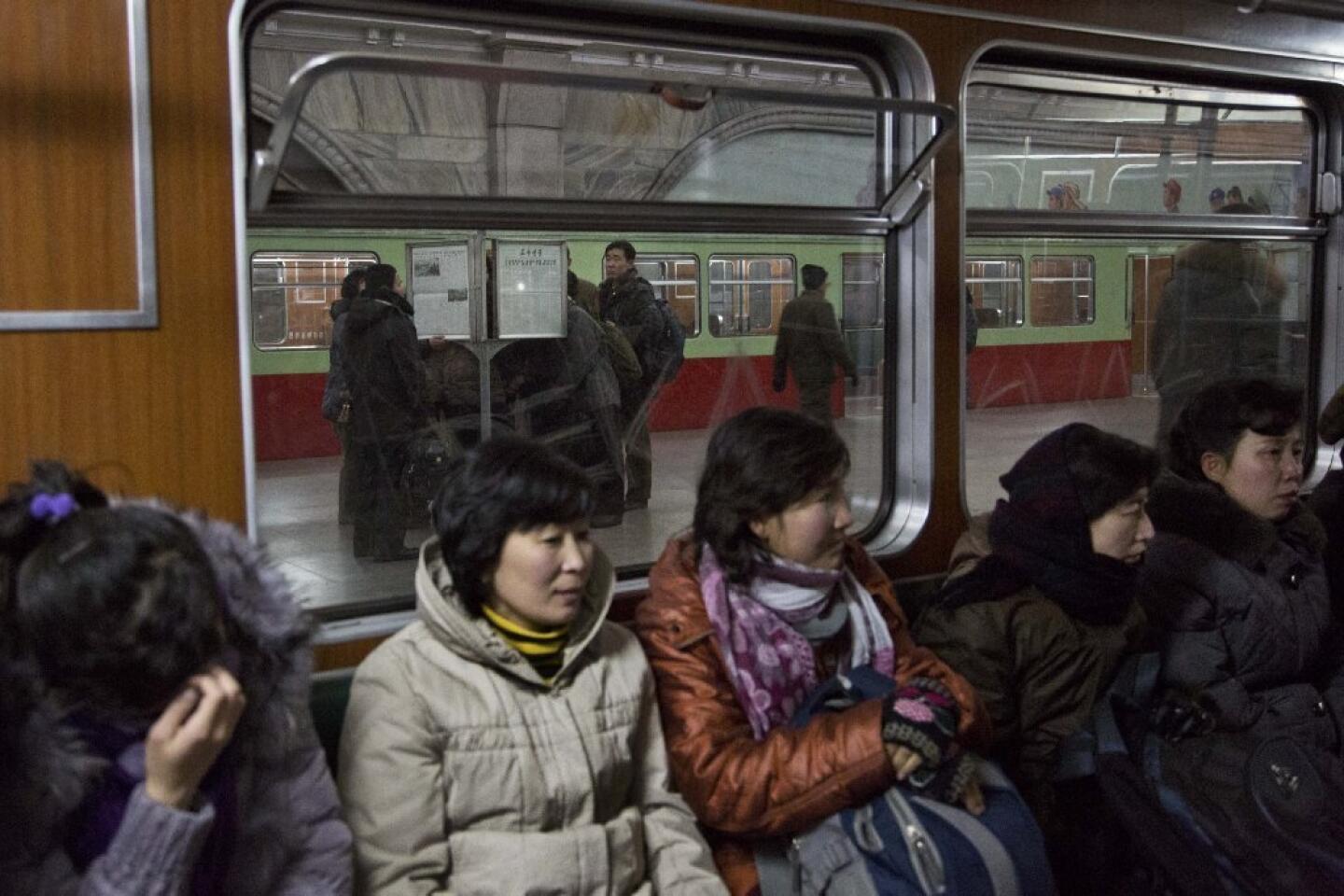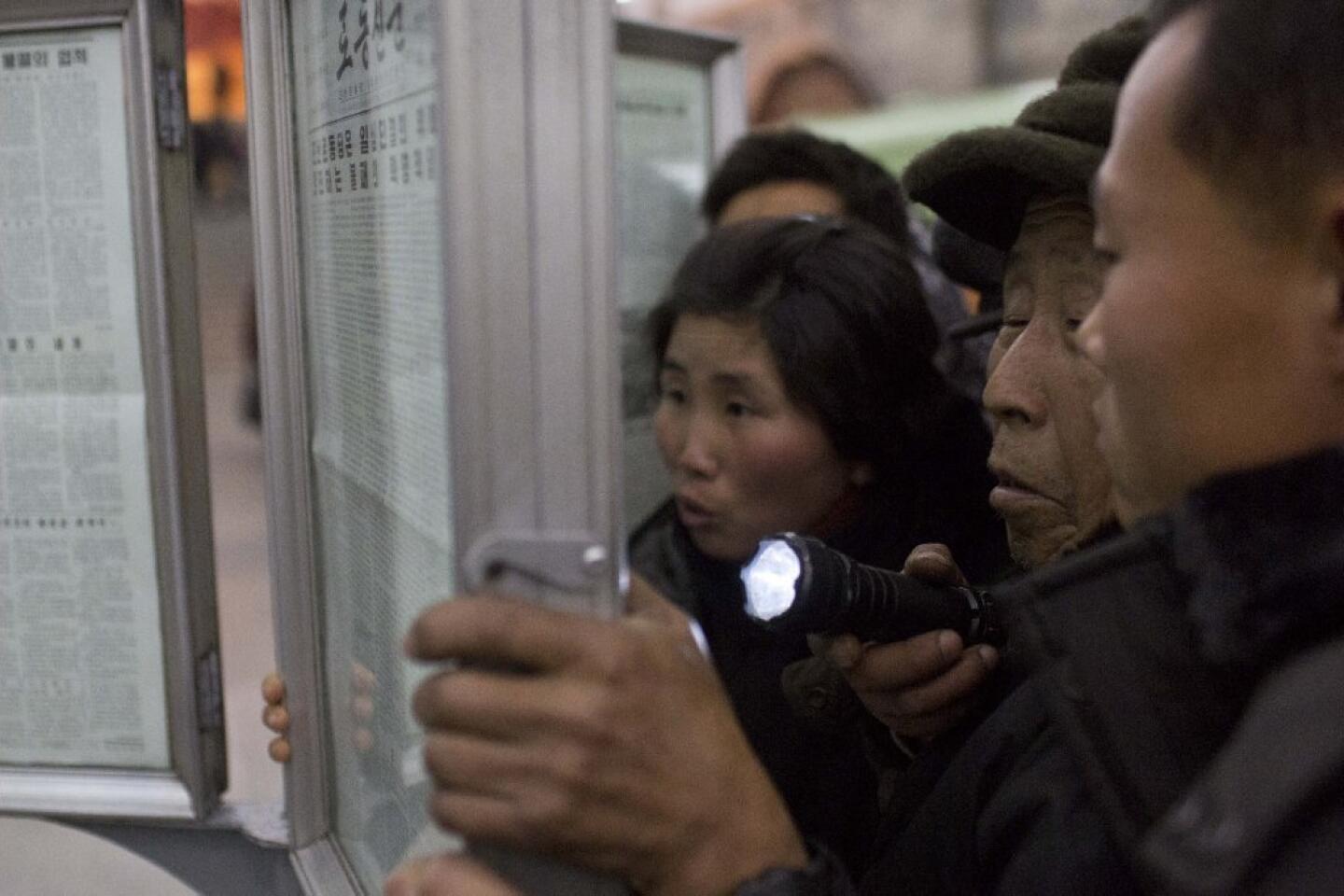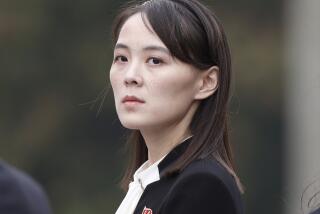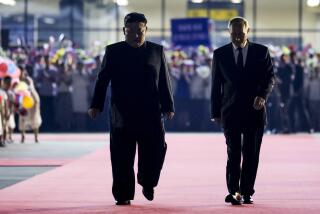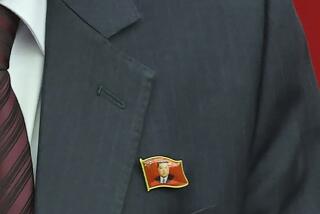North Korea leader’s purge looks like China’s Cultural Revolution
BEIJING -- One might call it North Korea’s version of the youth revolution.
There is Kim Jong Un, who at 30 is believed to be the world’s youngest head of state. His brother, Kim Jong Chul, two years older, whose main claim to fame is as an avid Eric Clapton fan. And the youngest of the Swiss-educated trio, 26-year-old sister Kim Yo Jong, is seen frequently as an aide de camp to the new leader.
With Thursday’s execution of their uncle, Jang Song Taek, and the purge of his cronies, the kids look to be in effect kicking out the adults.
“He had to get rid of the grumpy old men,’’ suggests Andrei Lankov, a North Korea scholar based in Seoul. “He couldn’t be a boss with subordinates who are twice his age, who don’t understand him and don’t take him seriously.’’
PHOTOS: North Korean leader’s uncle executed
Indeed, Kim’s tactics look much like China’s Cultural Revolution, launched by Mao Tse-tung in 1966 with youthful Red Guards terrorizing their teachers and authority figures.
The 67-year-old Jang, married to the youngest daughter of North Korea’s founder, Kim Il Sung, was for decades the trusted eminence grise, the interlocutor in an otherwise eccentric family.
He had been appointed the de facto regent before Kim Jong Il died in December 2011, a job that included reining in youthful impulses—something the younger Kim clearly resented.
In a 2,700-word screed released Friday, Jang was accused of doing “serious harm to the youth movement in our country, being part of the group of renegades and traitors in the field of youth work bribed by enemies.’’
Just two years in power, Kim Jong Un has made a cult of youth the theme of his reign— investing the country’s scarce resources in water slides, roller coasters, ski slopes and a “dolphinarium.”
As far as his outreach to the world, the most notable foreign dignitary to visit Pyongyang since he took over is the tattooed, body-pierced Dennis Rodman, the former basketball player. (“Jang Song Taek probably didn’t even know who Dennis Rodman is,’’ Lankov says.)
Along with the charges of plotting a coup, the report by the official Korean Central News Agency detailed remarkably petty grievances that Kim was clearly nursing for the past two years: When a monument was built to showcase a letter written by Kim to a unit of the Peoples’ Internal Security Forces, Jang directed that it be placed in a shady corner rather than in front of the building.
Jang was accused of behaving without enthusiasm when young Kim was promoted to vice chairman of the Central Military Commission. “He behaved so arrogantly and insolently as unwillingly standing up from his seat and half-heartedly clapping,” the report said.
Just two years since his father died, Kim has fired five of the seven elderly statesmen who walked behind the car carrying the coffin.
At least two other senior officials who reported to Jang have been executed -- Ri Yong Ha and Jang Soo Kil. A defector group in Seoul reported that brother Kim Jong Chul personally held the pistol when the two were arrested because nobody else was brave enough to do it.
“Kim Jong Un and Jong Chul often meet at the weekend to discuss matters. Jong Chul watches over his younger brother’s security,” defector Lee Yun-keol told the South Korean newspaper, Chosun Ilbo.
Although the story is likely apocryphal, the rumor itself is indicative of the myth Kim is trying to create — he and his two siblings as heroic, young warriors defending the pure Kim bloodline against the predations of an interloper.
More executions are expected to be announced as the purge continues. Unconfirmed reports from Seoul suggest that Kim might be going after another of his mentors — Ri Su Yong, who was appointed ambassador to Switzerland in 1988 and served as Kim’s guardian while the boy was attending school in Bern.
“If Kim Jong Un is capable of this, if there is no direct capacity for restraint, what are the implications?’’ asked Scott Snyder, a Korea expert with the U.S.-based Council on Foreign Relations. “Watching what happened with Jang makes you think of the nightmare scenarios.’’
The most frightening nightmare of all would be the young, impetuous leader misusing North Korea’s crude nuclear arsenal.
North Korea has already conducted three nuclear tests and has at least intermediate-range missile capability.
In March, for no discernible reason, Pyongyang declared itself to be in a “state of war” with South Korea and threatened the United States with “thermonuclear war.” The tantrums prompted a rare public chastisement from Chinese leader Xi Jinping.
“We are concerned. There are a lot of questions here, including the safety of North Korea’s nuclear weapons,”’ said Zhang Lianggui, a North Korea expert at the communist Central Party School in Beijing.
A more pedestrian worry is that Jang oversaw most of North Korea’s trading -- maintaining the balance between the various military-run companies that sell coal, iron ore and seafood in China and in turn import most of the country’s consumer goods.
“In running North Korea Inc., he was very effective at making money for the regime. The question now is who is going to replace him,’’ said John Park of Harvard University’s John F. Kennedy School of Government.
China stands to be most directly affected by the turmoil in North Korea. Among the many accusations leveled against Jang were selling North Korean natural resources like coal and iron ore at too-cheap prices to Chinese mining companies and improperly leasing a port to China in the Rason special economic zone on the Sea of Japan.
Moreover, Beijing is likely to be in a difficult position diplomatically if Jang’s underlings, many of whom work in China, attempt to defect to avoid being swept up in the purge.
“Seeing Jang’s execution, anybody connected to him has a sense of what will happen if they return, so it is very likely there will be people who seek asylum,’’ said Sohn Kwang-joo, editor of the Daily NK, a Seoul-based news service that focuses on the North.
Analysts believe, however, that most North Koreans who are not directly swept up in the purge will fall in line behind Kim Jong Un – despite his youth.
Kim Young-soon, a 77-year-old former dancer from Pyongyang, now living in Seoul, likens Kim to the young rulers of the ancient Korean dynasties.
“Kim Jong Un is young, but so were other heirs of the throne in the ancient kingdoms,’’ said Kim. “Even if an heir is only 10 years old, one still has to uphold the leader. That’s what the three generations of Kim dynastic rule are all about.”
Twitter: @BarbaraDemick
Staff writer Demick reported from Beijing and special correspondent Choi from Seoul.
More to Read
Sign up for Essential California
The most important California stories and recommendations in your inbox every morning.
You may occasionally receive promotional content from the Los Angeles Times.
